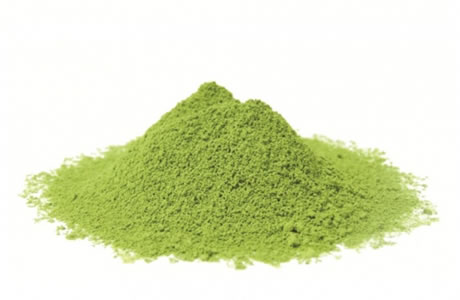Matcha is actually a powdered form of green tea. While other green teas are grown throughout the world, matcha tea is unique to Japan. Leaves are then shaded four weeks prior to harvesting, which causes a surge in chlorophyll production and the resulting bright green color. Matcha is an pricey form of tea, although price and quality vary with where it was grown, method and timing of harvest, and the precautions taken to keep the leaves from oxidizing. There are two types of usucha and koicha. Koicha comes from the first harvest of plants that are a minimum of 30 years old. Usucha comes from the leaves of tea plants that are less than 30 years old.
Matcha Benefits
Experts at Tufts University found that the oxygen radical absorbance capacity (ORAC) level of antioxidants in matcha tea is highly than in pomegranates or blueberries. Matcha tea ORAC rating is a mighty 1300 units per gram, compared to blueberries 91 units per gram or pomegranates 105 units. Using a mg catechin/g of dry leaf comparison, findings demonstrate that the concentration of EGCG available from drinking matcha tea is 137 times higher than the level of EGCG available from China Green Tips green tea, and at least 3 times more than the largest literature value for other green teas. Determination of catechins in matcha green tea.
tea is highly than in pomegranates or blueberries. Matcha tea ORAC rating is a mighty 1300 units per gram, compared to blueberries 91 units per gram or pomegranates 105 units. Using a mg catechin/g of dry leaf comparison, findings demonstrate that the concentration of EGCG available from drinking matcha tea is 137 times higher than the level of EGCG available from China Green Tips green tea, and at least 3 times more than the largest literature value for other green teas. Determination of catechins in matcha green tea.
The 4 main polyphenols found in tealeaves are epigallocatechin gallate (EGCG), epigallocatechin (EGC), epicatechin gallate (ECG), and epicatechin (EC). Epigallocatechin gallate (EGCG) is the most powerful of these catechins. Catechins antioxidant effect protects against cancer, preventing free radicals from attacking the body cells. According to laboratory studies, catechins scavenged oxidants before cell damage occurred, reduced the number and size of tumors, and inhibited the growth of cancer cells.
According to scientists at the University of Kansas, the antioxidant capacity of EGCG is approximately 100 times greater than that of vitamin C and 25 times greater than that of vitamin E in protecting DNA from the kind of free radical damage that is thought to increase the risk of cancer. In a study published in January 2007 in ‘Cancer Letters’ found that green tea polyphenols protected against the spread of breast cancer in both human breast cancer cells in vitro and in vivo. In a study published in the December 2004 issue of the “International Journal of Cancer” found that EGCG significantly inhibited, in a dose-dependent manner, the production of PSA (prostate-specific antigen), a marker for prostate cancer risk. In a double-blind, placebo-controlled study, 60 men took 200 mg of catechin or a placebo three times daily for 1 year. At the end of the study, fewer prostate cancers were detected in the catechin group (1 cancer in 30 men) compared with the placebo group (9 cancers in 30 men).
EGCG activates endothelial nitric oxide synthase in cells lining blood vessels, or endothelial cells. Increased release of nitric oxide causes smooth muscle within the blood vessel wall to relax, therefore, increasing the diameter of the blood vessel and improving blood flow. EGCG prevents heart muscle damage by blocking the activation of inflammation-related compounds that play a critical role in promoting the oxidative damage that kills heart cells in reperfusion injury.
Animal-based studies, mice bred to develop Alzheimer’s disease developed up to 54 % less beta-amyloid buildup in their brains when they were given daily injections EGCg. Beta-amyloid plaques are considered to be a major factor of the brain cell death and tissue loss seen in Alzheimer’s disease. Scientists in Taiwan, found that EGCG helps to lower monoamine oxidase type B, (MAO-B), in certain brain tissues. MAO is responsible for breaking down neurotransmitters in the brain, like dopamine, epinephrine, norepinephrine and serotonin. In a the study, reported in the September 2010 Journal of Clinical Neuroscience, lab mice with Parkinson’s disease were given the epigallocatechin-3-gallate, and nerve cell death was reduced by 50 %.
Matcha tea is a good source of the amino acid L-theanine. While this amino acid is common in all tea, matcha tea may contain up to 5 times more of L-theanine than common other tea. This amino acid, is able to cross the blood-brain barrier and is considered to be psychoactive. Possesses neuroprotective, mood-enhancing, and relaxation properties. Theanine appears to have a role in the formation of the inhibitory neurotransmitter Gamma Amino Butyric Acid. Research on human volunteers has demonstrated that theanine creates a sense of relaxation approximately 30 minutes after ingestion by two different mechanisms. 1-Theanine directly stimulates the production of alpha brain waves, creating a state of deep relaxation and mental alertness similar to what is achieved through meditation.2- Theanine is involved in the formation of the inhibitory neurotransmitter, gamma aminobutyric acid (GABA). According to a 2006 info in the “Journal of Herbal Pharmacotherapy“, L-theanine not only increases GABA levels in the brain, it also increases serotonin and dopamine levels. L-Theanine Dosage For Anxiety
Leave a Reply